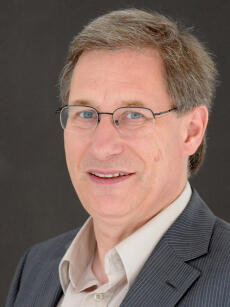Half of Syrians Living in Germany Favour Ceiling
Current Emnid survey shows positive attitude of people of Syrian origin towards newly arriving refugees – At the same time fears of arriving terrorists – Extensive study of Cluster of Excellence “Religion and Politics” of the University of Münster about integration

According to an Emnid survey, four fifths of people who originate from Syria and who have been in Germany for quite some time appreciate the country’s open policy towards refugees. However, half of the respondents advocate an admission ceiling. Three quarters of those surveyed show solidarity with the newcomers from Syria. The representative survey among immigrants of Syrian origin and their children in Germany, which the Cluster of Excellence “Religion and Politics” of the University of Münster has conducted together with the polling institute TNS Emnid over the past three months, also showed that only one third fears that their own situation will now worsen. According to the nationwide survey, 46 per cent also ask themselves whether there might be numerous terrorists among the newly arriving refugees.
71 per cent of respondents are convinced that most of their fellow countrymen who fled wish to return to Syria after the end of the war, as the sociologist of religion and head of the study Prof. Dr. Detlef Pollack explains. Just as many believe that “Germany can manage to deal with the problems of taking in so many refugees”. However, two thirds take the view that this can only succeed if the state and society changed a lot.
Much faith in German capacity to solve problems
On behalf of the Cluster of Excellence “Religion and Politics”, the polling institute TNS Emnid interviewed a total of 500 immigrants from Syria and their children between December 2015 and March 2016 for the survey. They have been living in Germany for 20 years on average, at least for one year, others for four decades. 20 per cent of respondents were born in Germany, 80 per cent were not. Half of them are German citizens, one third Syrian citizens, 11 per cent have dual German-Syrian citizenship, and four per cent a Syrian plus another passport.
Sociologist of religion Prof. Pollack says: “On the whole, most of those who immigrated from Syria and their children are open towards the newly arriving refugees and show solidarity with them. The extent to which they have faith in the capacity of Germany to deal with the refugee policy’s problems is amazing. At the same time – and in this, the respondents of Syrian origin are barely different from the German majority society – they clearly expect German politics and society to actively organise the integration process.” In light of the challenges, those surveyed are not free of concerns, regarding, for instance, growing competition in the economic and social domains. “Fears that there might be a lot of terrorists among the refugees are relatively massive – which again is a concern that respondents share with many people of the majority society.”
More survey results about integration and discrimination
The results are part of a large representative survey of the Cluster of Excellence and TNS Emnid among people in Germany of Turkish and Syrian origin about questions of integration, discrimination, religiousness and fundamentalism. The research association will publish detailed results in the weeks ahead. The Emnid survey was developed within the scope of a Cluster of Excellence research project headed by Prof. Dr. Detlef Pollack and with the collaboration of sociologists of religion Dr. Olaf Müller, Dr. Gergely Rosta and Anna Dieler.
For example, the research team around Prof. Pollack examines what members of the minority of Turkish and Syrian Origin – which is predominantly Muslim-oriented – understand by successful integration, how integrated they think they are themselves regarding language, culture or the labour market, what marginalisations they have experienced, and what role they ascribe to religions in society.
“In light of the growing religious plurality in Germany, there are often tensions between the majority society and religious or ethnic minorities”, explains Prof. Pollack. “It is therefore not sufficient to determine the attitudes, the norms and the self-perception of the majority society alone. Rather, it is necessary to thoroughly analyse the attitudes, interpretations, wishes and dislikes of the minorities as well. Political and legal regulations only take effect to the degree to which they meet with support in society as a whole.” (vvm)

